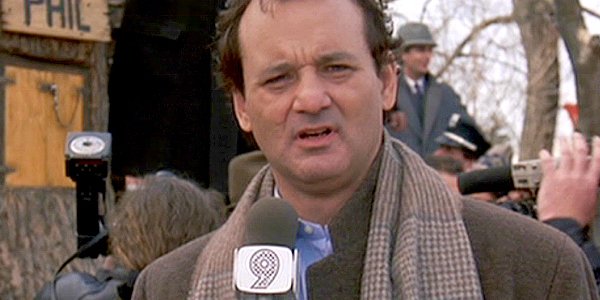Groundhog Day Was Originally Written As A Much Darker Film

Your Daily Blend of Entertainment News
You are now subscribed
Your newsletter sign-up was successful
Harold Ramis' Groundhog Day is a movie that many people watch annually on February 2nd, but this year has a special significance. The 1993 film is celebrating its 25th anniversary in 2018 - and it's certainly a feature worth celebrating and investigating. As die-hards know, it's a feature with a complicated backstory where a lot of changes were made throughout production - and apparently that included a draft with a much darker opening for the story that just dived straight into the narrative. Producer Trevor Albert recently explained,
The opening was darker. It required the audience to sort of go with that [premise]. I loved that. I think it probably would have been a very good movie in the original form, but I don't think it would have been as acceptable.
The dark first act that Trevor Albert is referring to is a version of Groundhog Day that didn't waste any time letting the audience get to know Phil Connors or understand how he arrived in Punxsutawney, Pennsylvania. Instead, according to an interview with Variety, the original draft of the script threw audiences right into the middle of the time loop. Apparently Albert was a big fan of this approach, but it wasn't popular enough to make it to the final draft.
Adding in his thoughts, screenwriter Danny Rubin offered a detail that one might guess could have led to the approach being axed: evidently there was an idea that would have seen Groundhog Day feature an omniscient narrator explaining things to the audience throughout the story. Said Rubin,
There was a voice-over that kind of helped the audience along, so they wouldn't get too disoriented.
Rather than risking audience disorientation or a narrator crutch, Groundhog Day axed both, and may very well be the better movie for it. There is a wonderfully natural way that the story progresses in the film, with Phil Connors first adjusting to and understanding his situation, then exploiting it, and then feeling crushed by it. The earliest draft would certainly have been very different, and may have had some great ideas of its own, but it's hard to argue with the finished product.
As alluded to - and covered in Variety's piece - Groundhog Day was a movie that went through a lot of revisions during its development, mostly because of clashes regarding tone. While director Harold Ramis envisioned the story to be more in line with his other feature efforts like Caddyshack and National Lampoon's Vacation, star Bill Murray had a much greater appreciation for the more philosophical elements of the narrative and pushed for their inclusion. By the end of production, the experience created a deep rift between Murray and Ramis and the two men didn't speak for nearly 20 years. Thankfully, they managed to patch things up before Ramis passed away in 2014.
Ultimately Groundhog Day is truly a brilliant film because of the way in which it balances both of Bill Murray and Harold Ramis' demands. It's not only outrageously funny, but it's also a genius existential exploration that builds off the work of thinkers like Jean-Paul Sartre and Friedrich Nietzsche. If you didn't watch it on February 2nd this year, the good news is that today is actually the official anniversary, so do yourself a favor and pick out your Blu-ray/DVD and give it a watch.
Your Daily Blend of Entertainment News

Eric Eisenberg is the Assistant Managing Editor at CinemaBlend. After graduating Boston University and earning a bachelor’s degree in journalism, he took a part-time job as a staff writer for CinemaBlend, and after six months was offered the opportunity to move to Los Angeles and take on a newly created West Coast Editor position. Over a decade later, he's continuing to advance his interests and expertise. In addition to conducting filmmaker interviews and contributing to the news and feature content of the site, Eric also oversees the Movie Reviews section, writes the the weekend box office report (published Sundays), and is the site's resident Stephen King expert. He has two King-related columns.
